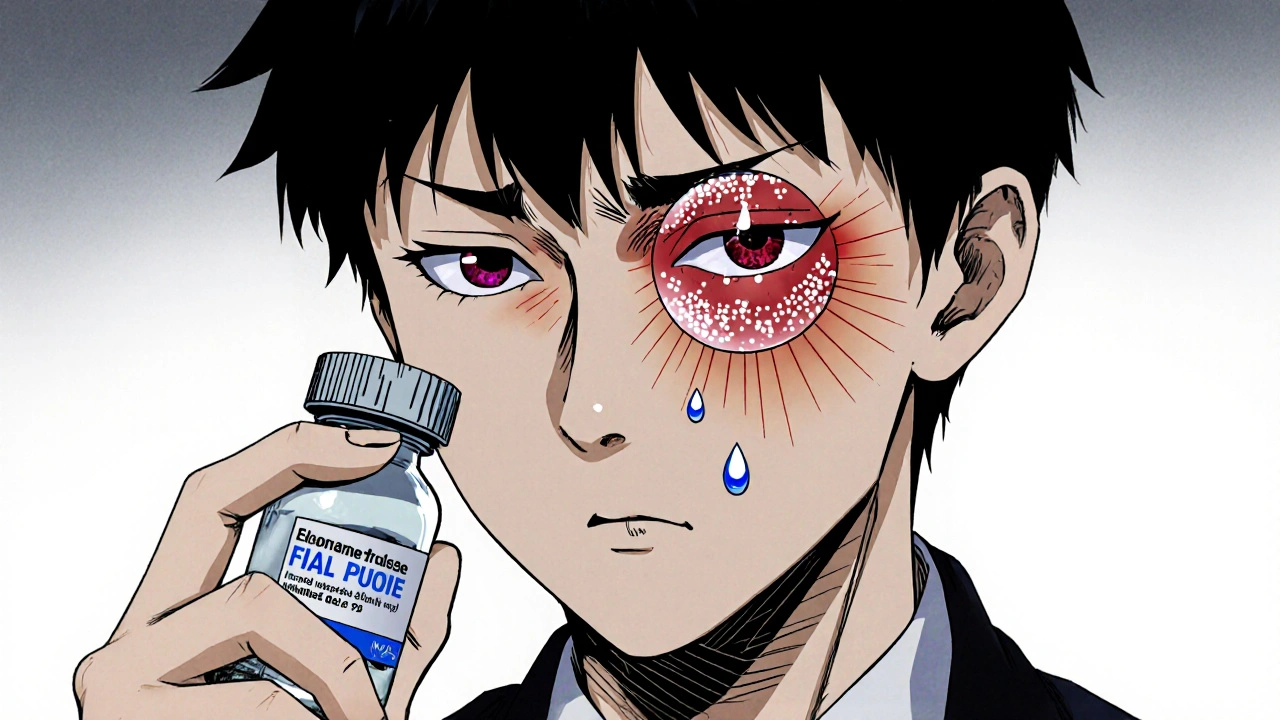Compare Eye Drops: Find the Right One for Your Needs
When you're dealing with red, itchy, or gritty eyes, eye drops, liquid medications applied directly to the eyes to relieve symptoms like dryness, inflammation, or pressure. Also known as ocular drops, they're one of the most common over-the-counter treatments—but not all of them do the same thing. A drop meant for allergies won’t fix glaucoma. A lubricant won’t kill bacteria. And using the wrong one can make things worse.
There are dry eye eye drops, formulas designed to replace natural tears and soothe irritation from screen use or aging, allergy eye drops, antihistamines or mast cell stabilizers that stop itching and swelling from pollen or pet dander, and glaucoma eye drops, prescription meds that lower pressure inside the eye to prevent nerve damage. Then there are antibiotic and steroid drops, which need a doctor’s note. Each type targets a different problem, and mixing them up is like using engine oil in your brake fluid.
What you need depends on what’s causing your discomfort. If your eyes feel tired after hours on your phone, you likely need a preservative-free lubricant. If they water and burn every spring, you need an antihistamine. If your vision is fading and your eye pressure is high, you’re not just dry—you might need a beta-blocker or prostaglandin analog. And if you’re using drops daily for months without seeing a doctor, you could be masking something serious.
The market is full of choices, but not all are equal. Some drops have preservatives that irritate sensitive eyes. Others are expensive because of branding, not ingredients. Generic versions often work just as well. And some products claim to "cure" dry eyes but just wash them out temporarily. Knowing how to compare eye drops means looking beyond the bottle design and reading the active ingredients. It means asking: Is this for relief? For treatment? For prevention?
You’ll find real comparisons here—side by side, no fluff. We break down what’s in each type, who it’s for, how long it lasts, and what the real side effects are. You’ll see how popular brands stack up against generics, how often you should use them, and when to stop and see a professional. No marketing hype. Just clear, practical info so you don’t waste money on drops that don’t work for your eyes.

Fluorometholone (FML Forte) vs. Other Eye Steroid Drops - 2025 Comparison
A 2025 guide comparing Fluorometholone (FML Forte) with other steroid and non‑steroid eye drops, covering potency, side effects, costs, and how to choose the right option.
read more




